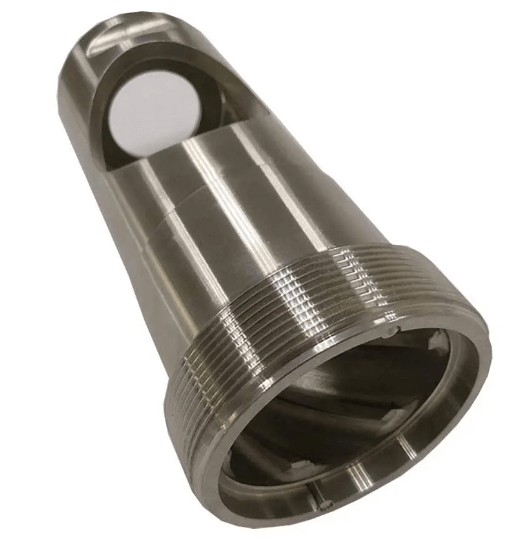Nickel based alloy castings are widely used in a variety of industries due to their exceptional properties. These alloys are known for their high resistance to corrosion and heat, making them ideal for use in harsh environments. They also offer excellent strength and durability, making them suitable for use in applications that require high levels of performance.
Casting alloys are commonly used in the production of nickel-based alloy castings. These alloys are specifically designed to provide the necessary properties for casting, such as fluidity and solidification characteristics. They are typically composed of nickel, chromium, and other elements that provide specific properties such as resistance to corrosion and high-temperature strength.
Overall, nickel-based alloy castings and casting alloys play a crucial role in many industries, including aerospace, automotive, and oil and gas. Their unique properties make them an attractive option for use in applications that require high levels of performance and durability.

Properties of Nickel-Based Alloy Castings
Nickel-based alloy castings are widely used in various industries due to their exceptional properties. These alloys offer excellent corrosion resistance, high-temperature strength, structural stability, and heat resistance.
Corrosion Resistance
Nickel-based alloys are known for their outstanding resistance to corrosion. They are highly resistant to various corrosive environments, including acidic, alkaline, and high-temperature environments. These alloys have excellent resistance to pitting, crevice corrosion, and stress corrosion cracking. Inconel, Monel, and Hastelloy are some of the popular nickel-based alloys known for their superior corrosion resistance.
High Temperature Strength
Nickel-based alloys exhibit exceptional strength at high temperatures. They retain their strength even at elevated temperatures, making them ideal for use in high-temperature applications. Inconel 625, Inconel 718, Hastelloy X, and Mar-M247 are some of the nickel-based alloys that offer excellent high-temperature strength.
Structural Stability
Nickel-based alloys offer excellent structural stability, making them ideal for use in critical applications. These alloys have a low coefficient of thermal expansion, which means they do not expand or contract much when exposed to temperature changes. This property makes them ideal for use in applications where dimensional stability is critical.
Heat Resistance
Nickel-based alloys exhibit exceptional heat resistance, making them ideal for use in high-temperature applications. These alloys can withstand high temperatures without losing their strength or other properties. Incoloy 901, Inconel, and Monel are some of the nickel-based alloys known for their excellent heat resistance.
In conclusion, nickel-based alloy castings offer exceptional properties that make them ideal for use in various industries. These alloys offer excellent corrosion resistance, high-temperature strength, structural stability, and heat resistance. Inconel, Molybdenum, Hastelloy, Inconel 625, Monel, Inconel 718, Hastelloy X, Mar-M247, and Incoloy 901 are some of the popular nickel-based alloys known for their exceptional properties.
Composition of Nickel-Based Alloy Castings
Nickel-based alloys are a group of materials that are widely used in various industries for their excellent corrosion resistance, high-temperature strength, and good mechanical properties. The composition of nickel-based alloy castings can vary depending on the specific application and performance requirements.
Solid Solution Strengthening
One of the primary mechanisms used to strengthen nickel-based alloys is solid solution strengthening. This is achieved by adding elements such as chromium, molybdenum, tungsten, and cobalt to the nickel matrix. These elements are known as solid solution strengtheners because they dissolve in the nickel matrix and create a lattice distortion that increases the strength of the material.
Precipitation Hardening
Another mechanism used to strengthen nickel-based alloys is precipitation hardening. This involves adding elements such as aluminum, titanium, and niobium to the nickel matrix. These elements form precipitates during the casting process that act as obstacles to dislocation movement, making the material stronger and more resistant to deformation.
Nickel-based alloys can also contain other elements such as copper, iron, and sulfur, which can affect the material’s properties. For example, copper can improve the alloy’s corrosion resistance, while iron can increase its strength.
Table 1 shows the typical composition of some common nickel-based alloys used in castings.
| Alloy | Ni | Cr | Mo | Fe | Co | Cu | Al | Ti | Nb |
|---|---|---|---|---|---|---|---|---|---|
| Hastelloy C-276 | 57 | 16 | 16 | 5 | – | – | – | – | – |
| Inconel 718 | 52 | 19 | 3 | 18 | – | – | 0.9 | 5.1 | – |
| Monel 400 | 66 | – | – | 30 | – | 28 | – | – | – |
In summary, the composition of nickel-based alloy castings can vary depending on the specific application and performance requirements. Solid solution strengthening and precipitation hardening are two mechanisms used to improve the strength of these materials. Other elements such as copper, iron, and sulfur can also be added to affect the material’s properties.
Note: Ni refers to the percentage of nickel in the alloy, and the other elements are expressed as a percentage of the total composition.
Heat Treatment of Nickel Based Alloy Castings
Nickel-based alloy castings are widely used in high-temperature applications due to their excellent resistance to corrosion, heat, and wear. However, to achieve the desired mechanical properties, these alloys require specific heat treatment processes. In this section, we will discuss the heat treatment of nickel-based alloy castings.
Solution Treatment
Solution treatment is the first step in the heat treatment process of nickel-based alloy castings. The purpose of solution treatment is to dissolve any unwanted phases and homogenize the microstructure of the alloy. This process involves heating the casting to a specific temperature and holding it at that temperature for a specific period. The temperature and holding time depend on the specific alloy and the desired properties.
Age Hardening
Age hardening is a heat treatment process used to increase the strength and hardness of nickel-based alloy castings. This process involves heating the casting to a specific temperature, holding it at that temperature for a specific period, and then cooling it to room temperature. The cooling rate is an essential factor in age hardening, and it should be controlled to achieve the desired properties.
Stress Relief
Stress relief is a heat treatment process used to reduce the residual stresses in nickel-based alloy castings. This process involves heating the casting to a specific temperature and holding it at that temperature for a specific period. The temperature and holding time depend on the specific alloy and the desired properties. Stress relief can improve the fatigue life and overall mechanical properties of the casting.
Annealing
Annealing is a heat treatment process used to soften nickel-based alloy castings. This process involves heating the casting to a specific temperature and holding it at that temperature for a specific period. The temperature and holding time depend on the specific alloy and the desired properties. Annealing can improve the ductility and toughness of the casting.
In conclusion, heat treatment is a critical process in the manufacturing of nickel-based alloy castings for high-temperature applications. The specific heat treatment process depends on the specific alloy and the desired properties. Solution treatment, age hardening, stress relief, and annealing are the most common heat treatment processes used for nickel-based alloy castings.
Foundry and Quality Control of Nickel-Based Alloy Castings
Nickel-based alloy castings are widely used in various industrial applications due to their excellent mechanical properties, high-temperature strength, and corrosion resistance. The production of nickel-based alloy castings involves several critical steps, including melting, casting, and quality control.
Non-Destructive Testing
One of the essential aspects of quality control in nickel-based alloy casting production is non-destructive testing (NDT). NDT techniques are used to detect and evaluate any defects or irregularities in the castings without causing damage to the material.
Some of the commonly used NDT techniques in nickel-based alloy casting production include:
- Ultrasonic testing: This technique uses high-frequency sound waves to detect internal defects, such as cracks, voids, and inclusions.
- X-ray testing: X-ray testing is used to detect defects that are not visible to the naked eye, such as porosity, shrinkage, and inclusions.
- Magnetic particle testing: This technique uses magnetic fields and magnetic particles to detect surface and subsurface defects, such as cracks and laps.
- Liquid penetrant testing: This technique involves applying a liquid penetrant to the surface of the casting and then removing the excess to reveal any surface defects.
By using NDT techniques, manufacturers can ensure that the nickel-based alloy castings meet the required specifications and are free from defects that could compromise their performance.
In addition to NDT, the foundry must also maintain a clean and controlled environment to ensure the quality of the castings. The foundry should have proper ventilation systems to remove any fumes and dust generated during the casting process. The temperature and humidity levels in the foundry should also be controlled to prevent any adverse effects on the casting process and the quality of the castings.
Overall, the foundry and quality control processes play a crucial role in the production of high-quality nickel-based alloy castings. By using NDT techniques and maintaining a clean and controlled environment, manufacturers can ensure that the castings meet the required specifications and perform as expected in their intended applications.

Applications of Nickel Based Alloy Castings
Nickel based alloy castings are widely used in various industries due to their excellent mechanical properties, high-temperature resistance, and corrosion resistance. In this section, we will discuss some of the major applications of nickel-based alloy castings.
Aerospace
Nickel-based alloy castings are extensively used in the aerospace industry due to their excellent high-temperature strength and corrosion resistance. These alloys are used in engine components such as turbine blades, combustor liners, and exhaust nozzles. In addition, nickel-based alloys are used in airframe components such as landing gear, engine mounts, and structural components.
Power Generation
Nickel based alloy castings are also used in power generation applications due to their high-temperature strength and corrosion resistance. These alloys are used in steam turbine components such as blades, nozzles, and casings. In addition, nickel-based alloys are used in gas turbine components such as combustor liners, turbine blades, and vanes.
Chemical Processing
Nickel based alloy castings are highly resistant to corrosion and are therefore used in chemical processing applications. These alloys are used in pumps, valves, and fittings that come in contact with corrosive fluids. In addition, nickel-based alloys are used in heat exchangers and reactors.
Automotive
Nickel-based alloy castings find applications in the automotive industry due to their high-temperature strength and corrosion resistance. These alloys are used in engine components such as turbocharger housings, exhaust manifolds, and valve seats. In addition, nickel-based alloys are used in suspension components and brake rotors.
Gas Turbine
Nickel-based alloy castings are widely used in gas turbine applications due to their high-temperature strength and corrosion resistance. These alloys are used in combustor liners, turbine blades, and vanes. In addition, nickel-based alloys are used in exhaust systems and heat exchangers.
Valves
Nickel-based alloy castings are often used in valve applications due to their excellent corrosion resistance and high-temperature strength. These alloys are used in gate valves, ball valves, and globe valves. In addition, nickel-based alloys are used in valve seats and stems.
Gears
Nickel based alloy castings are also used in gear applications due to their high-temperature strength and wear resistance. These alloys are used in gears for high-performance engines, transmissions, and aerospace applications.
In conclusion, nickel-based alloy castings find applications in various industries due to their excellent mechanical properties, high-temperature resistance, and corrosion resistance. These alloys are often used in aerospace, power generation, chemical processing, automotive, gas turbine, valve, and gear applications.
Conclusion
Nickel based alloy castings are a popular choice for a wide range of applications, including aerospace, power generation, and chemical processing. This is due to their excellent properties, including high strength, resistance to corrosion and oxidation, and good thermal stability.
Nickel-based alloy castings have been used for many years and have a proven track record of high performance in demanding environments. They are also cost-effective, making them a popular choice for many industries.
In addition to their excellent properties, nickel-based alloy castings are also highly versatile, with a range of different alloys available to suit specific applications. These alloys can be tailored to meet specific requirements, such as high-temperature resistance, wear resistance, or corrosion resistance.
Overall, nickel-based alloy castings are an excellent choice for many applications, providing high performance, versatility, and cost-effectiveness. As such, they are likely to remain a popular choice for many industries for years to come.
